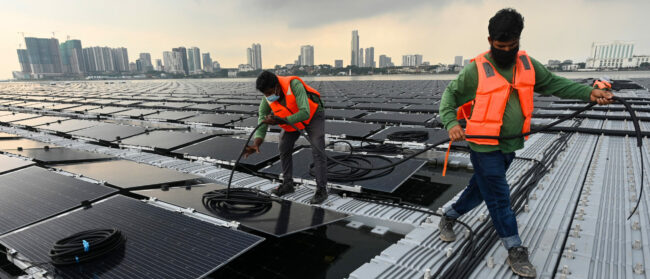Late last week, foreign ministers across Southeast Asia received an unexpected, last-minute invitation.
On 14 June, Thai Foreign Minister Don Pramudwinai called an informal ASEAN gathering in the beach city of Pattaya to discuss re-engagement of the bloc with Myanmar, sparking a wave of criticism and questions from across the region.
Representatives of some bloc countries, including Malaysia, Singapore and Indonesia, told media outlets in the days leading up to the meeting – which included leaders from the Myanmar military government, a move that defied ASEAN’s “Five-Point Consensus” on addressing the post-coup conflict – that they had no plans to attend or hadn’t even heard of the gathering.
Experts believe the rushed move highlighted regional divides toward the raging conflict in Myanmar.
“This call not only accentuates the political split between mainland and maritime Southeast Asia but also undermines Indonesia’s power as ASEAN chair,” said Hunter Marston, an analyst and PhD researcher at Australian National University.
Marston pointed to Laos, Vietnam and Cambodia’s support of Thailand’s re-engagement with Myanmar, contrasted with the strong opposition of Malaysia and Indonesia.
Last week, Singaporean Foreign Minister Vivian Balakrishnan condemned the coup and said it would be “premature to re-engage with the [Myanmar] junta at a summit level or even at a foreign minister level.”
Balakrishnan condemned the coup and said ASEAN had seen no “significant progress in fulfilling the Five-Point Consensus”, which calls for an immediate end to violence and dialogue among all parties. But the foreign minister also tempered his words somewhat.
“Having said that, the ASEAN chair, Indonesia, is engaging across a wide spectrum of stakeholders, and the key point is this: You do need everyone ultimately to sit down and negotiate,” Balakrishnan said. “I don’t know how long it will take. The last time, it took 25 years for some form of democratic transition to occur in Myanmar – I hope it won’t take that long.”
Addressing the critics, Don reiterated that Thailand was not acting on behalf of ASEAN and that the meeting would be an informal hearing on the latest update about Myanmar.
But the talk didn’t convince the opposers. In an open letter to the Thai minister, hundreds of civil society organisations demanded the immediate cancellation of the meeting, calling the move “a complete affront to the people of Myanmar who have sacrificed their lives to resist the Myanmar military’s attempt to seize power through years-long terror campaign against the whole nation”.
With more than 3,000 kilometres of shared land and maritime border, Thailand is often the closest country for fleeing Myanmar citizens. The country is now facing an influx of refugees from its neighbour and its high representatives – including outgoing Prime Minister Prayuth Chan-o-cha, a former military general who seized power through the 2014 coup – are pushing for a solution to the conflict.
The Myanmar military leadership seized power with a violent coup in February 2021 overturning the democratically elected government. Though the resulting junta has pushed for a normalisation with ASEAN, it has entertained neither a cessation of violence nor a dialogue with the parallel National Unity Government, which is the embattled successor of the democratically elected civilian government.
The only country to send a foreign minister besides Thailand was Laos. Some other countries, such as Cambodia, sent lower-ranking officials.
Regional experts also wonder whether the outgoing Thai government meeting called this meeting fearing the short time it has left in power as the election-winner and opposition Move Forward Party is likely to form a new government in August. Opposition leader Pita Limjaroenrat is committed to a tougher attitude towards the Myanmar issue. However, his political eligibility is now under investigation over the alleged ownership of media shares.
“Prayut’s government is either rushing with its plans before it steps down or ploughing the soil for a long-term scheme,” Marston said. “That would be the case if the government is planning on disregarding the victory of the democratically elected party.”


